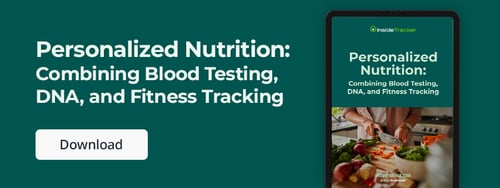![]() Are you getting enough zinc? Zinc is a mineral important to maintain good health and optimize athletic performance year-round. It's a vital part of healthy cell metabolism, immune function, protein and DNA synthesis, and wound healing. If you’re not convinced that you should be paying attention to zinc, keep in mind it's also important for healthy heart, cholesterol levels, respiratory system and low inflammation levels!
Are you getting enough zinc? Zinc is a mineral important to maintain good health and optimize athletic performance year-round. It's a vital part of healthy cell metabolism, immune function, protein and DNA synthesis, and wound healing. If you’re not convinced that you should be paying attention to zinc, keep in mind it's also important for healthy heart, cholesterol levels, respiratory system and low inflammation levels!
 Beefing up your zinc knowledge
Beefing up your zinc knowledge
Zinc is an essential mineral that is found naturally in some foods, or can be taken as a supplement. An “essential” mineral means that our body can’t produce zinc on its own and we must obtain it through our food. Men and women need 11mg and 8mg of zinc per day, respectively. It's found primarily in red meats and seafood, especially oysters and mollusks. Zinc is also found in plant sources like whole grains and legumes, but in much lower quantities and with lower absorption than that from animal products.
Some of the best food sources of zinc include:
- Seafood such as oysters, Alaskan king crab, and lobster
- Fortified breakfast cereals
- Beef, pork, and chicken (especially the dark meat)
- Dairy products, such as milk, cheese and yogurt
- Beans, including garbanzo (chickpeas) and kidney
- Nuts, such as almonds and cashews
- Oatmeal
Are you getting enough zinc?
If your zinc levels are too low, you may see signs of zinc deficiency including white spots, bands, lines on finger nails, hair loss, skin rashes, acne, diarrhea, poor eyesight, and impaired taste, smell and memory. However, you may have a zinc deficiency and exhibit no symptoms at all.Zinc deficiency may impair your ability to absorb water, electrolytes, and nutrients; and, over time, can lead to impaired immune function, growth retardation, and increased sensitivity to cell damage leading to premature aging. In healthy individuals, consuming high levels of zinc usually does not present a health problem. Our bodies are able to extrude most of the zinc it can’t use. However, consuming too much zinc, especially from supplements, (more than 40mg per day) is still not recommended and may lead to both acute and chronic zinc toxicity. Symptoms of acute zinc toxicity include nausea, vomiting, loss of appetite, abdominal cramps, diarrhea, and headaches. Long-term toxicity can manifest itself as low copper status, altered iron function, reduced immune function, and reduced levels of high-density lipoproteins (or “good” cholesterol).
Certain diets also put you at greater risk for deficiency. For example, the elderly are at a greater risk of a zinc deficiency. Vegetarians also face at a greater risk for insufficient zinc intake from diet alone. Vegetarians sometimes require as much as 50% more of the requirement daily amount for zinc for several reasons: (1) zinc in harder for your body to absorb in non-animal sources than it is in animal sources; (2) vegetarians typically eat high levels of legumes and whole grains, which contain antioxidant compounds called phytates that bind zinc and inhibit its absorption.
![]()
How to zinc-crease your blood levels
There are several different ways you can increase the levels of zinc in your blood. The most obvious is to eat more zinc-rich foods. But you can also increase the amount of zinc available in your diet through food preparation techniques, including soaking beans, grains, and seeds in water for several hours until sprouts form to reduce the amount of phytates before cooking.Vegetarians can also increase their zinc intake by consuming more leavened grain products, such as bread, rather than unleavened products, such as crackers. (Leavening partially breaks down phytates, allowing the body to absorb more zinc from leavened grains than unleavened grains).
Lastly, you can talk to your doctor about taking a zinc supplement. As little as 5mg per day of zinc can be enough to improve your zinc blood levels.
Keep in mind the following guidelines if you and your doctor decide that a supplement is right for you:
- Avoid foods rich in phytates (such as broccoli, grains, and legumes) because they inhibit zinc absorption in your gut.
- Avoid iron, copper, and calcium supplements, when you take zinc supplements as they compete for absorption.
- Take zinc supplements with high zinc foods like red meat to increase absorption.
- When choosing a supplement, remember that zinc sulfate and zinc acetate supplements are absorbed better than zinc oxide and zinc carbonate.
Put a little zinc in your stride
Athletes should pay special attention to their zinc consumption. Those who don’t consume enough zinc can suffer significant weight loss, low energy, and reduced endurance. They're also at risk for decreased bone mineral density, which can lead to bone fractures (read: sitting on the bench). Having adequate zinc levels has been shown to improve athletic performance and VO2 max (the maximum capacity of a person’s body to take in and use oxygen during exercise), an indicator of cardiorespiratory endurance.Endurance athletes who follow a high carbohydrate diet that is low in proteins and fats may be at increased risk for zinc deficiency. Long distance runners can deplete zinc stores more quickly than other types of exercise, and engaging in strenuous exercise has also been shown to deplete your levels.
